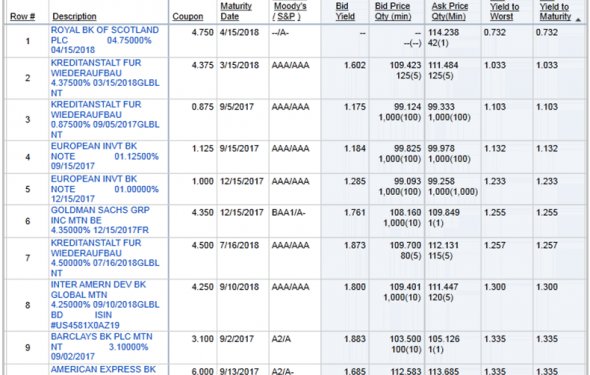Fixed bonds rates

A fixed-rate bond is a bond that pays the same amount of interest for its entire term. The benefit of owning a fixed-rate bond is that investors know with certainty how much interest they will earn and for how long. As long as the bond issuer does not default, the bondholder can predict exactly what his return on investment will be. An investor who wants to earn a guaranteed interest rate for a specified term could purchase a fixed-rate Treasury bond, corporate bond or municipal bond.
BREAKING DOWN 'Fixed-Rate Bond'
A key risk of owning fixed-rate bonds is interest rate risk, or the chance that bond interest rates will rise, making an investor’s existing bonds less valuable. For example, if Tom purchases a bond that pays a fixed rate of 5%, but interest rates increase and new bonds are being issued at 7%, Tom is no longer earning as much interest as he could be. If he wants to sell his 5% bond to invest in the new 7% bonds, he will do so at a loss, because a bond’s market price decreases when interest rates increase. The longer the fixed-rate bond’s term, the greater the risk that interest rates might rise and make the bond less valuable. If interest rates decrease to 3%, however, Tom’s 5% bond would become more valuable if he were to sell it, since a bond’s market price increases when interest rates decrease.
Tom could reduce his interest rate risk by choosing a shorter bond term. He would probably earn a lower interest rate, though, because a shorter-term fixed-rate bond will typically pay less than a longer-term fixed-rate bond. If Tom wants to hold his bond until maturity and is not considering selling it on the open market, he will not be concerned about possible fluctuations in interest rates.